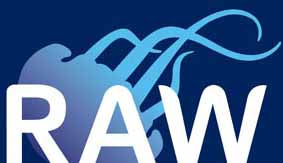Training Abstracts
|
TARGET AND NET TRAINING WITH AN ELECTRIC EEL Lara Zamarripa, National Aquarium Institute Watch Video (Login required) Full Abstract
Electric eels (Electrophorus electricus) are common at many public aquariums, including the National Aquarium, Baltimore Maryland, which houses an electric eel called Sparkay. Like all electric eels, it can be hazardous to work with and is capable of producing high voltage electric shocks that can travel throughout the exhibit. The eel also shares the common trait of near-blindness and uses the electric potential of objects to navigate. These characteristics make electric eels often difficult to feed, move for exhibit maintenance, and handle for medical procedures. Through diligent research and planning, a target was designed that allows the eel to target train using electrolocation. After target training was achieved, the eel was conditioned to curl up inside a net for transport. This paper outlines the steps used in training, as well as the pitfalls and successes of trying to work with an animal that sees the world in a completely different way than humans do. |
TRAINING OF AN ALLIGATOR SNAPPING TURLE, MACROCHELYS TEMMINCKII, AND THE ADVANTAGES OF TRAINING WITH OTHER "NONTRADITIONAL" SPECIES
Kurt Hettiger and Lisa Takaki, John G. Shedd Aquarium Watch Video (Login required) Full Abstract
The training of marine mammals is fairly common at many zoos and aquariums. However, in recent years more and more aquariums have implemented training programs for a variety of “non-traditional” species including fish, invertebrates and reptiles. Shed Aquarium has been involved in formal training of many species for several decades - however, in recent years the training has expanded to include a rehabilitated sea turtle (Chelonia mydas), an alligator snapping turtle (Macrochelys temminckii), a Giant Pacific Octopus (Enteroctopus dofleini), and many others. This paper will focus on the techniques and advantages to training of one male alligator snapping turtle while also exploring some of the other training that has aided in the care of a variety of species. |

